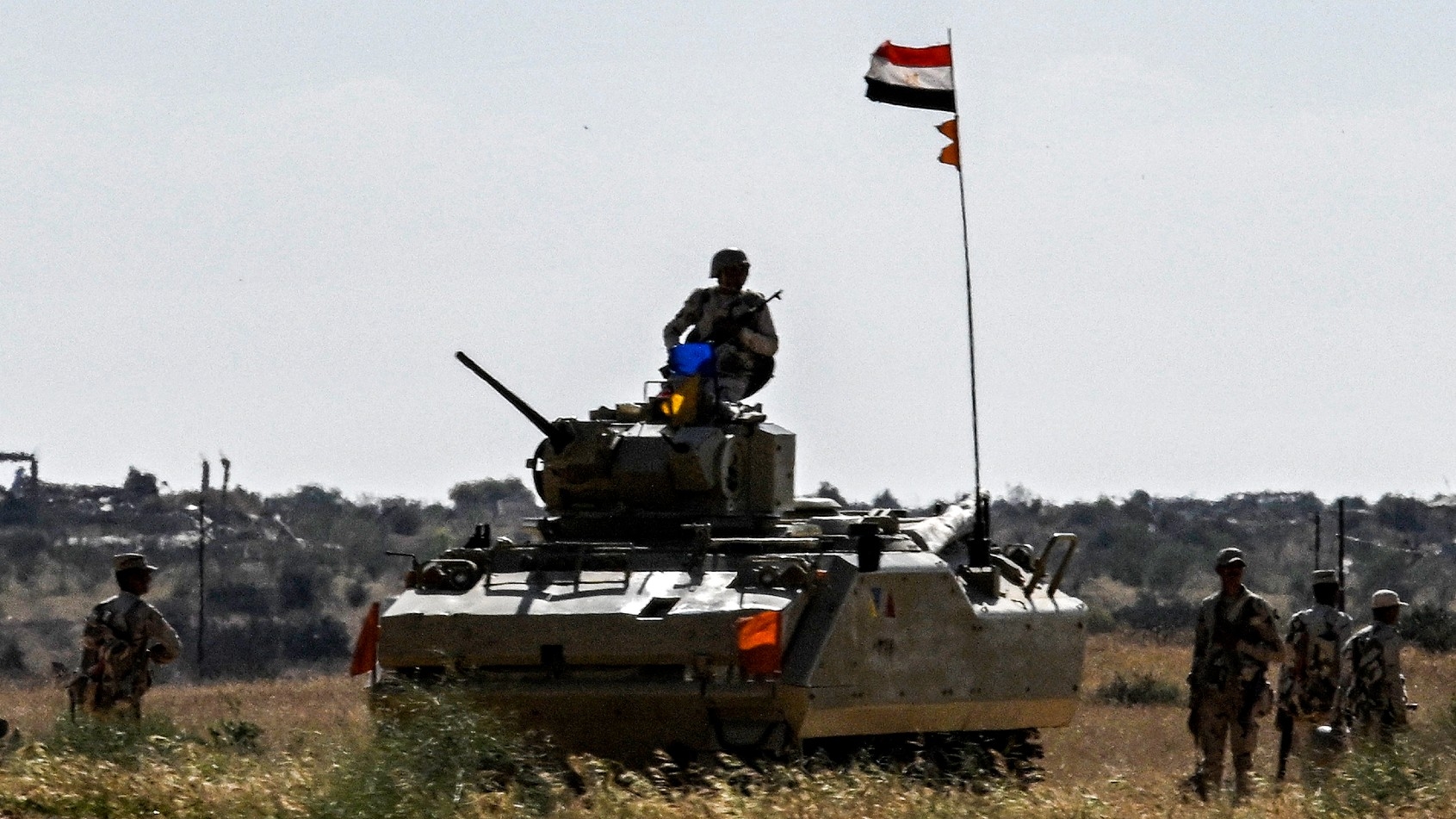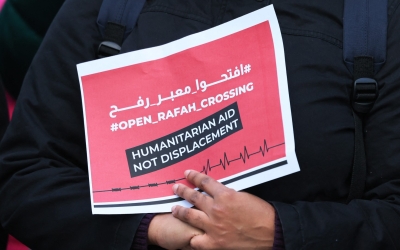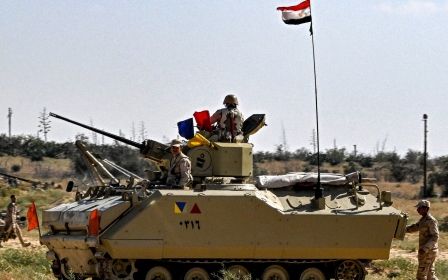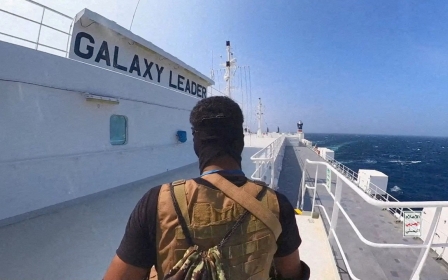Why Egypt's Sisi continues to protect Israel

The world was shocked on Sunday by images of the destruction wrought by Israel’s air strike on Palestinian tents in Rafah, near the Egyptian border.
This massacre came at a time when the healthcare system in Gaza has nearly collapsed, prompting official and popular appeals to “sister Egypt” to send its ambulances and transfer injured people to its hospitals. These pleas were met with official silence.
Hours after this incident, a wave of anger erupted on Egyptian social media after reports of a clash between Egyptian and Israeli forces at the border, resulting in the deaths of two Egyptian soldiers.
New MEE newsletter: Jerusalem Dispatch
Sign up to get the latest insights and analysis on Israel-Palestine, alongside Turkey Unpacked and other MEE newsletters
Egypt’s military spokesperson ultimately released a statement noting that the army was investigating the shooting incident, without providing any details about those killed or injured.
During burial ceremonies for the two victims, the state and its institutions continued to show indifference. Soldier Abdallah Ramadan was buried in a popular funeral in his village, not a military one as is customary for those killed in the line of duty.
The second victim, Ibrahim Islam Abdelrazzaq, was not only ignored, but his death was denied by official sources, despite his funeral being broadcast via social media, including chants against Israel.
Camp David strategy
This official Egyptian indifference, contrasted against widespread public anger, aligns with the regime’s stance since the start of Israel’s war on Gaza on 7 October.
The regime’s strategy revolves around the Camp David Accords, signed with Israel in 1978 - its sole strategic framework across the military, political and diplomatic arenas. This strategy has consistently benefited the regime, which has exploited it fully.
Follow Middle East Eye's live coverage of the Israel-Palestine war
In a telephone interview with a Saudi TV channel, Diaa Rashwan, the head of Egypt’s State Information Service and unofficial spokesperson for the presidency, described relations with Tel Aviv as the greatest prize in the history of the Israeli state.
This might be an accurate description of the treaty between the two countries, which removed the largest Arab state from the Arab-Israeli conflict and gradually became a sacred idol in Egyptian strategy.
Despite the protection that the regime offers Israel ... some soldiers and junior officers occasionally conduct operations against Israeli forces
Since the presidency of Anwar Sadat, Egyptian regimes have internalised the idea that their importance to the American empire lies in maintaining relations with Israel. This idea has deepened under the Sisi regime, which has benefited from this arrangement since day one and continues to do so.
American support extends beyond its annual $1.3bn in aid to Egypt, to include indirect support through international institutions, such as the International Monetary Fund (IMF) and allies in the Gulf and Europe. The latest case in point was the IMF rescue package to prevent the regime’s economic collapse.
Israel has also benefited greatly from the Egyptian strategy, not only in removing a key Arab country from the conflict, but also in exporting an image to the Israeli public that the Egyptian regime is submissive to its will - as seen by the official indifference to the killing of Egyptian soldiers and Egypt's silence regarding the occupation of the entire Philadelphi axis despite previous Egyptian warnings and threats, which Israel revealed were empty threats.
Western complicity
This equation might have been a key factor in facilitating the current presidential term of Abdel Fattah el-Sisi, despite severe and widespread electoral violations across Egypt, including preventing supporters of opposition candidate Ahmed Tantawy from issuing endorsements, in addition to arrests of his supporters.
These violations went largely uncriticised in the West, especially in the US, and many other violations have also been ignored, including the arrest of Tantawy himself on the morning of the Rafah border clash.
To maintain this relationship, Cairo acts as a mediator in negotiations between Israel and resistance factions, striving to end the war as quickly as possible by any means. The fear is that worsening conditions could increase pressure on Egypt or affect the peace agreement, especially with regards to the relocation of Palestinians to the Sinai.
This could heighten military tensions along the border with Israel, which the regime uses domestically for propaganda purposes to pretend that it is a defender of the Palestinian cause.
On the other hand, the Sisi regime may attempt to replicate former President Hosni Mubarak’s equation with the US, but with new parameters. Mubarak long marketed that the only alternative to his rule was the Muslim Brotherhood - a scarecrow in American policy, especially after the 9/11 attacks.
Sisi’s equation suggests that the democratic alternative to his regime would be hostile towards Israel, representing a popular will that sees itself as part of the battle against Israel. Despite the protection that the regime offers Israel from this will, some soldiers and junior officers occasionally conduct operations against Israeli forces. What would happen if this regime protection did not exist?
The views expressed in this article belong to the author and do not necessarily reflect the editorial policy of Middle East Eye.
Middle East Eye delivers independent and unrivalled coverage and analysis of the Middle East, North Africa and beyond. To learn more about republishing this content and the associated fees, please fill out this form. More about MEE can be found here.






